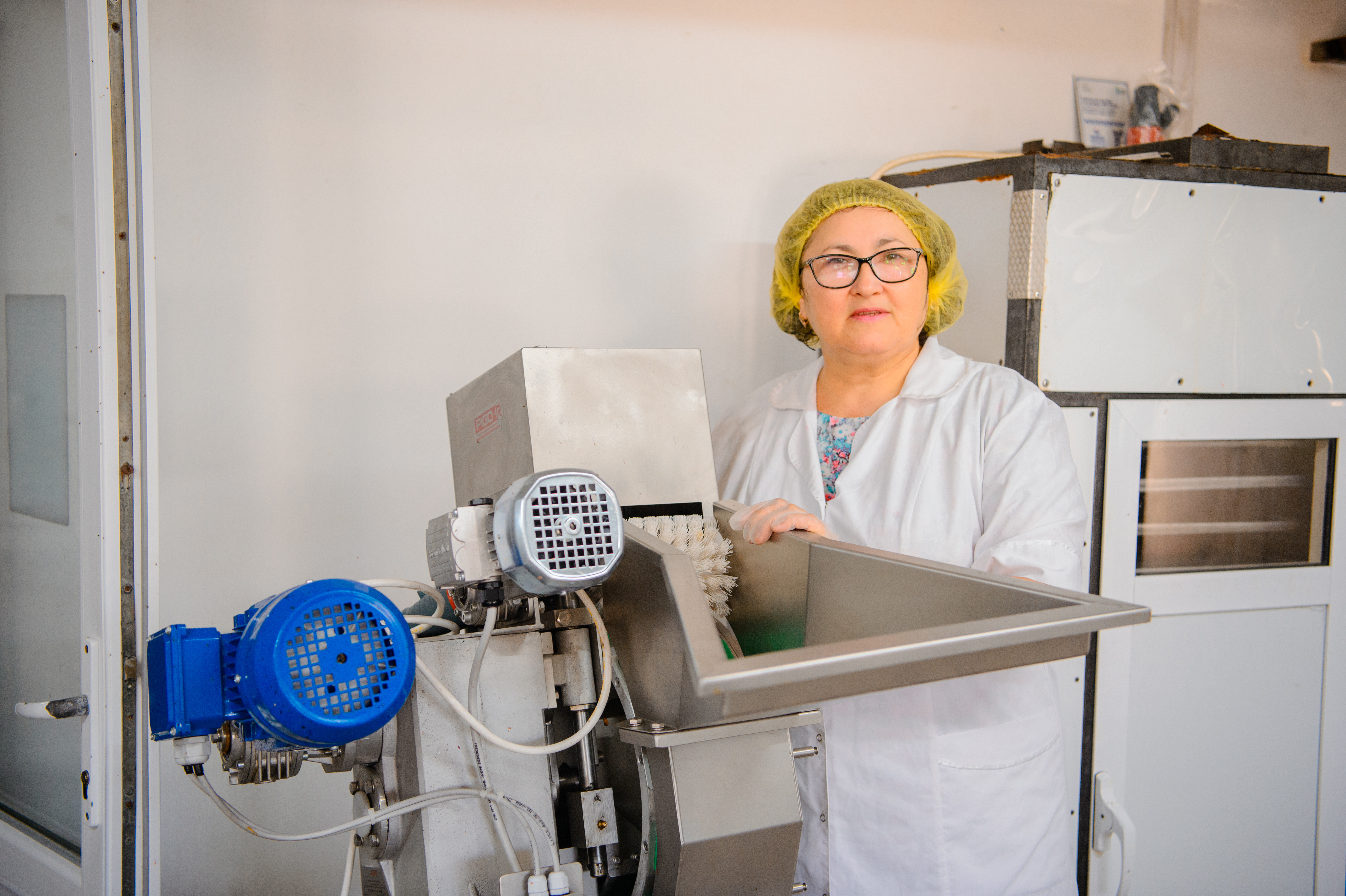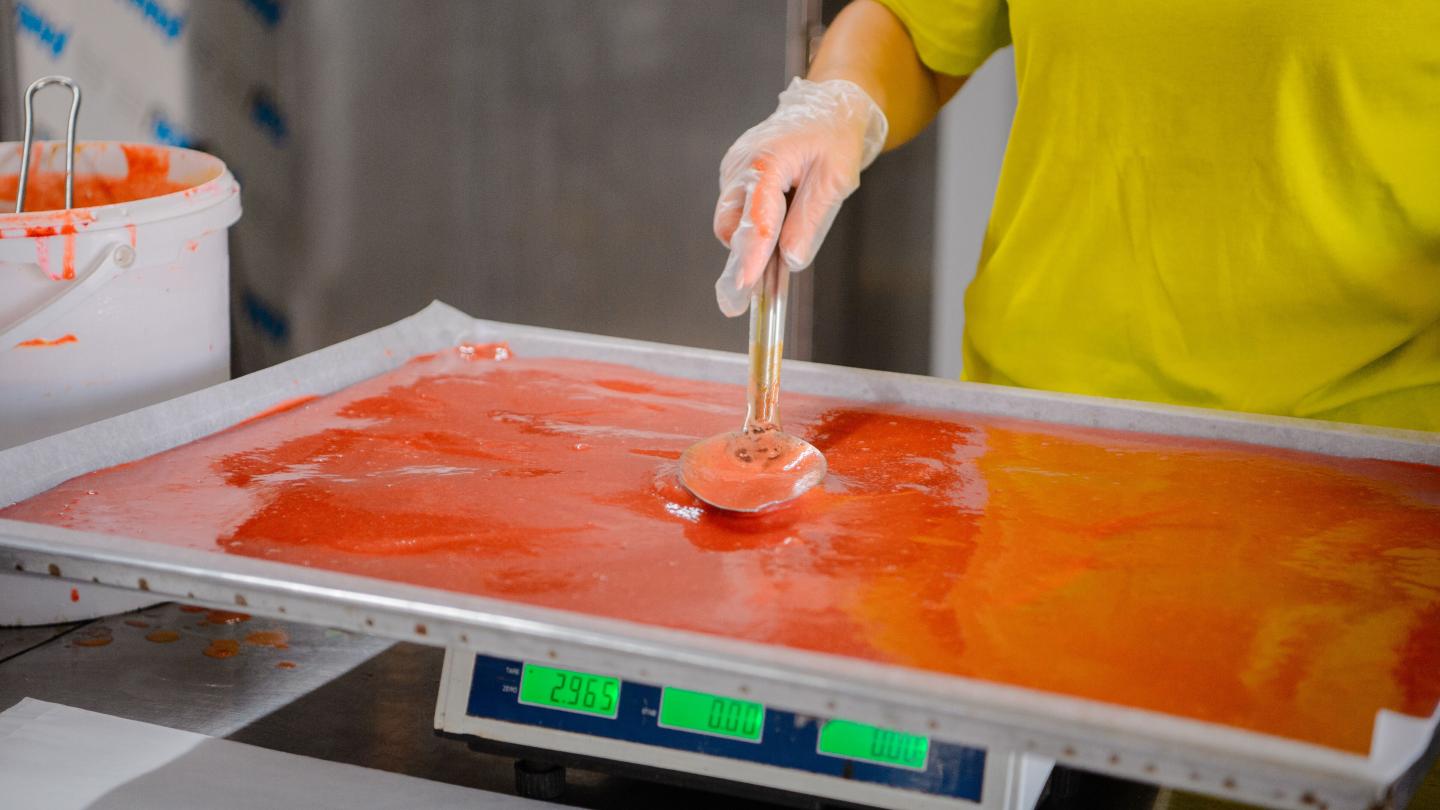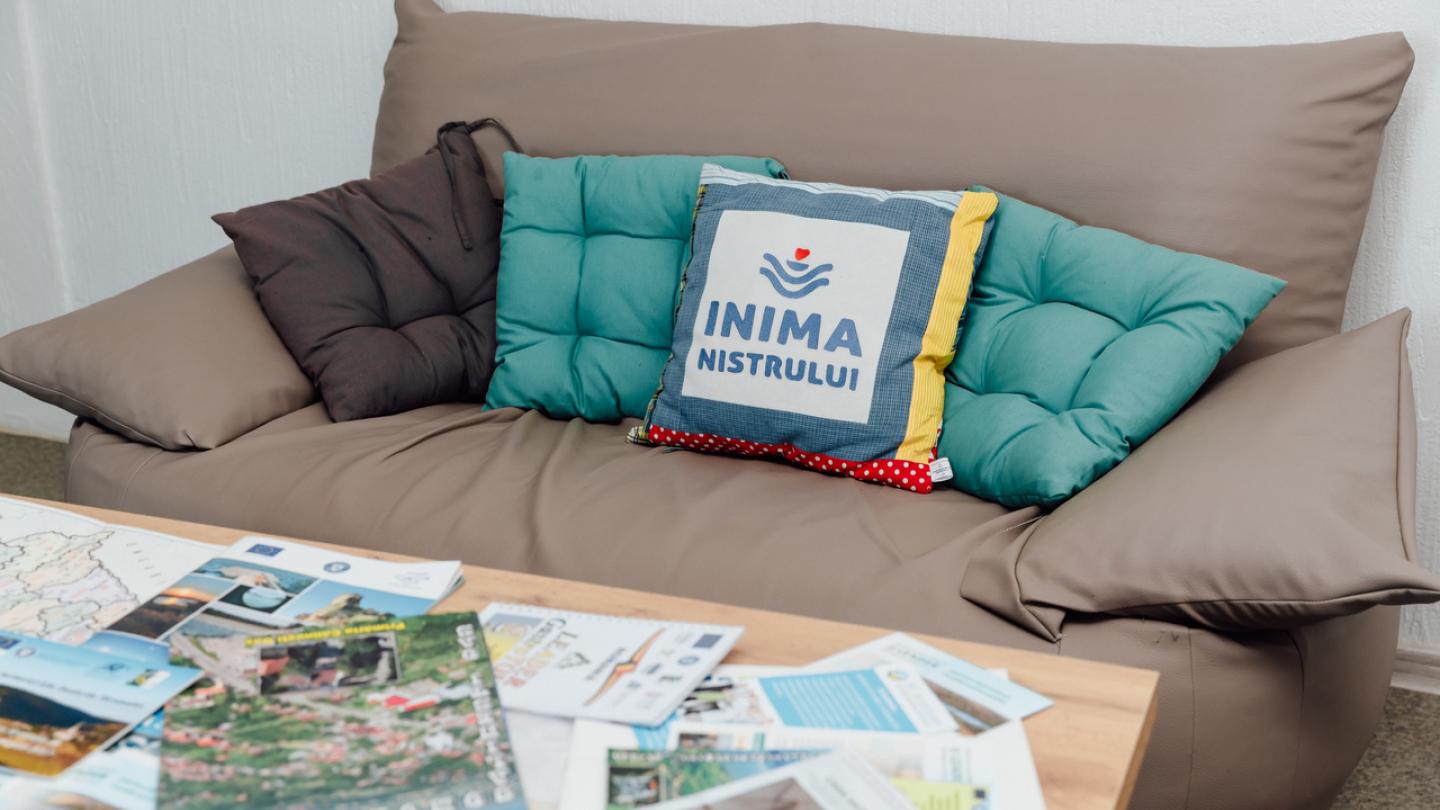Fruit leather - a new market niche
September 11, 2024

Ludmila Castraveț, entrepreneur
How is it to grow fruits and vegetables and not be able to sell them all and watch them drying, for no purpose? For years, Viorica Verlan from Pîrîta village, Dubăsari district has witnessed this struggle of producers, to whom she was providing accounting services. It was then when the idea of launching a business of fruit leather came to her.
Looking for more information and insights, she learned about Ludmila Castraveț from Criuleni, with eight years of experience in the fruit leather production field. Ludmila had a difficult start, in a time when the market wasn't quite ready for natural, but unfamiliar desserts. Her desire to produce healthy sweets became even stronger with the appearance of her grandchildren, when she noticed the lack of healthy alternatives on the local market, in a country otherwise abundant in fruits and berries. It took however some time to develop these fruit leather products and promote them through direct sales, considering the niche consumer base.
“I was dreaming about new, healthy products without additives and added sugar and started producing fruit and berry pastilles. Some people liked them, others less so. I realized that this is a product that doesn't sell like hotcakes but has a specific market segment. My business was growing slowly also because of the relatively high price of the product, as not everyone could afford it. Now, more people buy it, because the benefits outweigh the costs,” said Ludmila.
Viorica visited few times Ludmila's production unit, witnessing the number of personnel involved, fruit storage procedures, peeling techniques, and final product packaging. Ludmila's production process includes technology for both small-batch packaging for individual consumers and larger quantities suitable for export or restaurants.
“I was impressed by the meticulous attention to detail and the commitment to quality at every stage of the production process.From the careful selection and storage of the fruits to the modern peeling techniques and packaging, everything was done with such precision and care. I was inspired by the team's motivation to deliver products of the highest quality, suitable for both domestic markets and export," said Viorica.
Fruit leather - win-win for health and for “pockets”
Fruit leather, also known as fruit roll-ups or fruit strips, has been produced and consumed globally for centuries. By drying pureed fruit into a leathery consistency, early cultures were able to create a portable and long-lasting snack that helped preserve excess fruit, especially during harvest seasons.
In Moldova, fruit leather production is currently a growing industry that leverages the production of a large variety of fruits, including apples, plums, and berries. In addition, Moldovan households have a long-standing tradition of drying fruits as a method of preservation, often creating homemade versions of fruit leather.
The modern production process begins with selecting ripe, fresh fruit, which is then washed, peeled, and de-seeded. The fruit is blended until smooth, with sweetener and lemon juice added if desired. The puree is spread evenly on lined baking sheets or dehydrator trays and dried in an oven or food dehydrator, coming out as a healthy snack without preservatives and artificial ingredients.
Starting a business from scratch
Armed with valuable knowledge and a solid business plan, Viorica applied to a competition for business ideas announced by UNDP and Japan and obtained essential, modern and energy-efficient equipment of US$20,000 for setting up from scratch a production facility: a dehydrator and a stove, so as stainless steel tables.
Ludmila has also received business support from the Government of Japan through UNDP. She was offered equipment for removing pits from cherries, apricots, and other fruits, also a sieving machine that separates the fruit pulp from the pit, also used for pureeing fruits such as apples and plums. The sieving machine is also used for removing the smallest pits, like those of strawberries and raspberries. From the Japanese funds, Ludmila also acquired a fruit washing machine, a sorting conveyor, and a packaging machine for dried fruits.
"This support is very important for the business. Small businesses, especially those developed by women in rural areas, are in vital need of both financial and informational support to be able to thrive. We feel encouraged to improve our productivity, competitiveness and sustainability, be it a start-up or an experienced business,” says the entrepreneur.
“If we join forces and use complementary equipment, we can secure a market for our products.”Ludmila Castraveț
Now, Ludmila and Viorica are peers and simultaneously pursue their dreams.
“Ludmila is very active at fairs and she often asks me about the progress of our equipment and production process, because there is demand both locally and internationally, and once we enter the game, we must deliver the agreed quality and quantities," explains Viorica.
Both women entrepreneurs are part of the same tourism micro-cluster - "Heart of Nistru" - established with UNDP and Switzerland support to enable smart specialization of local economies. Viorica was elected as the manager of the tourism cluster, which comprises 52 members.
"We are not competitors, our aim is to collaborate and export large volumes of high-quality production. High-performance equipment demands significant investments, but if we join forces and use complementary equipment, we can secure a market for our products and ensure business continuity. Engaging in such a business alone, particularly with export ambitions, can be very challenging,” says Viorica Verlan.
Now, while Viorica plans to open a restaurant and bakery adjacent to her production facility, Ludmila is striving to partner with local supermarket chains and certify production so as to export in the European Union. Until then, the micro-cluster helped her identify a new business partner, to test a new line of fruit leather made from cornelian cherries combined with watermelon.

 Locations
Locations





























